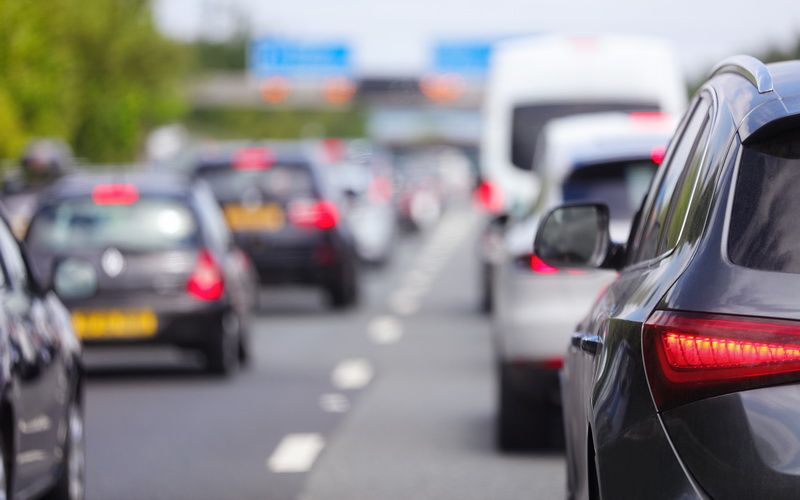Can employers claim back NICs and other motoring allowances?
As an Employer have you been paying NICs on company car allowances (and similar motoring allowances)? If so, you might be eligible to reclaim these NICs for up to six years

The Upper Tribunal has recently ruled in the case of HMRC vs Willmott Dixon / Laing O’Rourke that employers’ providing their employees with motoring expenses in the form of ‘round sum payments’ can, in certain circumstances treat these payments as not liable to either employee or employer NICs. Moreover, HMRC recently confirmed that they are not appealing the Upper Tribunal’s decision and so this case is now ‘binding’ from a legal precedent perspective.
So, what has been happening up until now?
Some employers have traditionally provided their employees with ‘round sum motoring allowances’ e.g., a company car allowance and then either:
- Expected the individual to provide their own car for business purposes and pay all business mileage costs directly, or
- Only provided for business mileage expense claims on a restricted basis, that is, below the rates which are HMRC approved (so 45p per mile for the first 10,000 business miles in a tax year), with the assumption being that the remaining costs are covered by the round sum payment(s), which the individuals have received
While the above approach has always been ‘practical’ from an Income Tax perspective, where individuals can simply make a claim for Income Tax relief for their business miles via their annual self-assessment tax return, the NIC position has been unclear. Specifically, HMRC have always argued that exemption from NIC is not available for ‘round sum allowances’ of this type, and that for no NIC to arise, the employers needed to specifically reimburse actual, evidenced business mileage claims.
The position after this case is a positive one.
The good news for employers (and employees too) is that the Upper Tribunal has confirmed that the advance payment of motoring expenses i.e. via round sum motoring allowances, can be outside the scope of NIC in certain circumstances.
The specific conditions for the payments to be exempt from NIC include:
- Have you been providing your employees (or at least some employees) with a round sum motoring allowance or similar payments, from which they are expected / required to provide a vehicle for business purposes?
- Did those round sum payments get subject to class 1 NICs?
- Where the individuals expected to have business mileage? Did they actually have business mileage during the year?
- Is there a proper record of the business mileage that they had during the relevant tax years?
- Was any reimbursement of actual mileage which they received (if any), below the regular HMRC approved rates for when an employee uses a private vehicle on company mileage (so less than 45p per mile for the first 10,000 miles per tax year / 25p per mile thereafter)?
Potential next steps
If the above conditions are all satisfied, it may be possible to reclaim the employee and employer NICs which were paid on the allowances.
Such claims would typically need to be made via a payroll adjustment, a so-called Earlier Year Update (EYU), to the payroll submissions which were made when the payments were originally made to the employees. Moreover, employers need to realise that while they are entitled to the employer NICs back, where the relevant conditions are satisfied, the employee NICs would be due back to the employee (though this would still in practice need to be undertaken via the EYU process).
In addition, employers need to understand that there is a six year time limit on such claims, so, assuming they have kept the relevant records, employers could potentially go back to the 2017/18 UK tax year.
Experience often shows that many employees are not aware that they can claim Income Tax relief e.g. via their self-assessment tax return or by requesting an adjustment to their PAYE tax code, for their business mileage costs that they incur each year. This ruling therefore provides an opportunity for employers to highlight to their employees, or indeed remind them, of the fact that they may be able to claim Income Tax relief directly for the miles that they travel on business each year in their own car. Such Income Tax relief claims can go back up to four years.
In addition, employers might want to have Blick Rothenberg:
- Formally review their historical arrangements in this area, to formally assess whether the conditions laid down by the UT ruling are satisfied in a particular case
- Undertake a review, to assess the potential scale of any NIC refunds which could be due
- Assist in the preparation of the relevant EYU payroll claims, and
- Provide you with direct help and guidance in discussing this matter with employees.
Would you like to know more?
If you have any queries in this regard, please get in touch with your usual Blick Rothenberg contact or Matt Crawford, Jo How or Robert Salter
You may also be interested in

Car allowance tax relief

Autumn Budget 2022: Tax threshold cut not as severe as current tax year
















